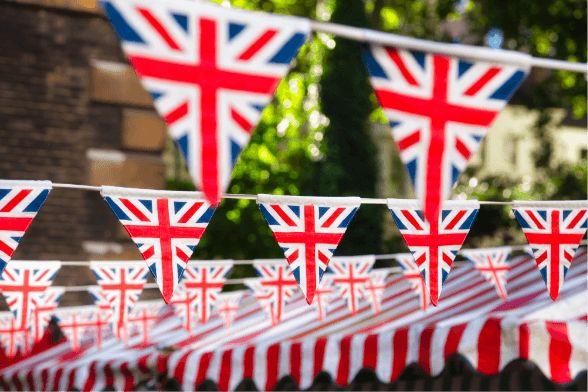
Courses for children 7–9 years old
Our primary courses aim to supplement our student’s existing knowledge and learning by providing a friendly space to practice and increase confidence.
We build on the foundations of English by expanding lexical awareness (vocabulary) and functional communicative skills (conversation) with fun and engaging content.
Find out more about Meridian Courses schedule, syllabus and academic calendar below.
Schedule
New students aged 7-9 can start their Meridian classes on Mondays or Tuesdays, providing you complete the registration by 9.30 am (UK) on the chosen start date. The course dates include public holidays and school closures.
During booking, you will find the course dates for children aged 7-9. A sample timetable is below. Time adjustments follow UK's GMT to BST transition. We will notify you if this affects your child's class.
2 times a week GMT/BST +1

3 times a week GMT/BST +1

What your child will learn at each levels?
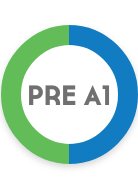
• Can recognise numbers, prices, days of the week, if they are spoken clearly and slowly.
• Can recognise familiar words accompanied by pictures such as a picture book using familiar vocabulary.
• Can produce short phrases about themselves, giving basic personal information.

• Can understand and use familiar everyday expressions and very basic phrases.
• Can introduce him/herself and others and can ask and answer questions about personal details such as where he/she lives, people he/she knows and things he/she has.
• Can interact in a simple way provided the other person talks slowly and clearly and is prepared to help.

• Can understand sentences and frequently used expressions related to areas of most immediate relevance (e.g. very basic personal and family information, shopping, local geography, employment).
• Can communicate in simple and routine tasks requiring a simple and direct exchange of information on familiar and routine matters.
• Can describe in simple terms aspects of his/her background, immediate environment and matters in areas of immediate need.
Primary Content Course 7–9 year-olds
 Units 1-4
Units 1-4
|
Course Title
ITE
duration
12 weeks
18–30 h |
Core Themes | Core Vocabulary | Core Grammar | Core Pronunciation |
|
• Hello |
• Classroom objects and |
• Say hello, introduce |
• Letters and phonics A-Z |
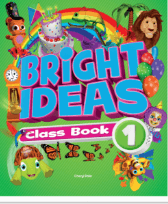 Units 1 - 4
Units 1 - 4
|
Course Title
Pre-A1.1
duration
12 weeks
18–30 h |
Core Themes | Core Vocabulary | Core Grammar | Core Pronunciation |
|
• What do we like about school? |
• Classroom objects and |
• ‘It’s a…’ and ‘have got/ |
• Consonant sounds /r/ |
 Units 5 - 8
Units 5 - 8
|
Course Title
Pre-A1.2duration
12 weeks18–30 h |
Core Themes | Core Vocabulary | Core Grammar | Core Pronunciation |
|
• What do we eat? |
• Food |
• ‘What do you…?’ and |
• Consonant sounds /tʃ/ |
 Units 1 - 4
Units 1 - 4
|
Course Title
Pre-A1.3
duration
12 weeks
18–30 h |
Core Themes | Core Vocabulary | Core Grammar | Core Pronunciation |
|
• Why do we like |
• Possessions and
|
• Possessive adjectives |
• Consonant sounds /w/ |
 Units 5 - 8
Units 5 - 8
|
Course Title
Pre-A1.4
duration
12 weeks
18–30 h |
Core Themes | Core Vocabulary | Core Grammar | Core Pronunciation |
|
• Why are animals |
• Wild animals and things |
• Present simple |
• Pronounce the /h/ sound |
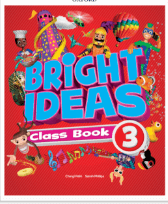 Units 1 - 4
Units 1 - 4
|
Course Title
A1.1
duration
12 weeks
18– 30 h |
Core Themes | Core Vocabulary | Core Grammar | Core Pronunciation |
|
• How do we make friends? |
• Activities and prepositions of movement |
• Present continuous and imperatives |
• The sound /ei/ |
 Units 5 - 8
Units 5 - 8
|
Course Title
A1.2
duration
12 weeks
18–30 h |
Core Themes | Core Vocabulary | Core Grammar | Core Pronunciation |
|
• How do we make friends? |
• Beach activities and |
• Questions with ‘Want to’ |
• Vowel sounds /ɔː/ (walks) |
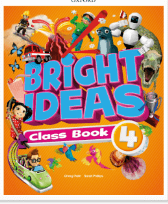 Units 1 - 4
Units 1 - 4
|
Course Title
A1.3
duration
12 weeks
18–30 h |
Core Themes | Core Vocabulary | Core Grammar | Core Pronunciation |
|
• What’s exciting about |
• Camping activities and |
• Past simple irregular |
• Vowel sounds /ɜː/ (third) |
 Units 5 - 8
Units 5 - 8
|
Course Title
A1.4
duration
12 weeks
18–30 h |
Core Themes | Core Vocabulary | Core Grammar | Core Pronunciation |
|
• What’s great about a zoo? |
• Zoo animals and Zoo keeper jobs |
• ‘going to + affirmative, |
• The /aʊ/ sound |






